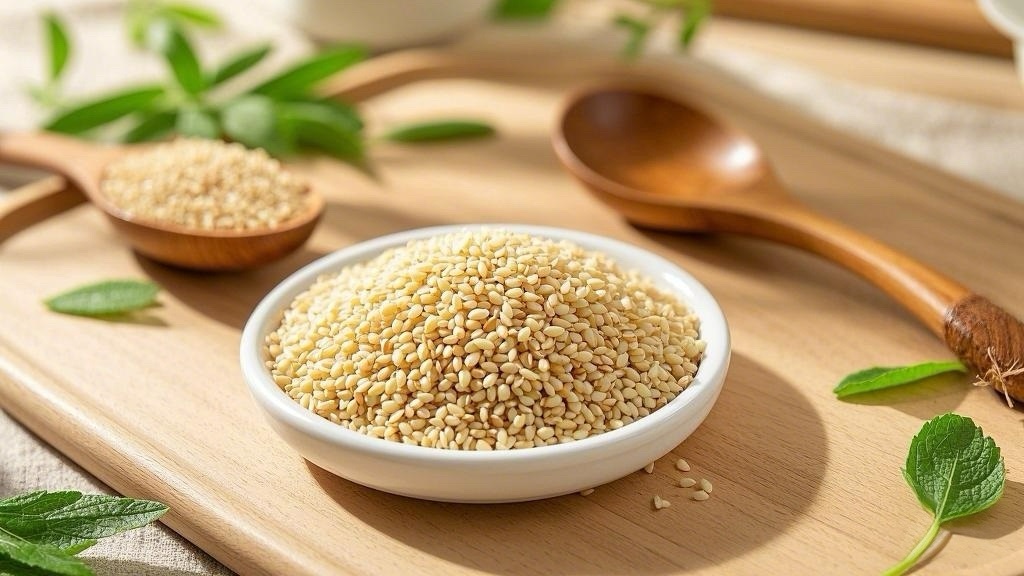
Date: 07/19/2025 07/20/2025
Location: Star River Meditation Center
Teacher: Yunquan Huang
Buddhist Diet and Regimen
Sesame Seeds
Sesame Seeds: A Nutrient-Dense Superfood Rich in Healthy Fats and Minerals
1. What are Sesame Seeds?
Sesame seeds (Sesamum indicum) are small, nutrient-rich seeds derived from one of the oldest cultivated oilseed plants. Available in black and white varieties, sesame seeds are widely used in cooking, seasoning, and as a base for sesame oil. With their rich flavor and numerous health benefits, sesame seeds play a key role in many global cuisines.
2. Nutritional Value of Sesame Seeds
Sesame seeds are packed with healthy fats, dietary fiber, protein, and essential minerals. Key nutrients include:
1.Unsaturated Fats: Help lower bad cholesterol and promote heart health.
2.Dietary Fiber: Supports digestion and gut health.
3.Plant-Based Protein: Provides essential amino acids, making it an excellent vegetarian protein source.
4.Calcium: Supports strong bones and teeth, especially beneficial for plant-based diets.
5.Iron: Aids blood circulation and helps prevent anemia.
3. Health Benefits of Sesame Seeds
1.Supports Heart Health: Rich in unsaturated fats that help regulate cholesterol levels.
2.Strengthens Bones: High calcium and magnesium content contribute to bone health.
3.Aids Digestion: Dietary fiber promotes regular bowel movements and improves gut function.
4.Enhances Antioxidant Protection: Contains sesamin and vitamin E, which combat free radical damage and slow aging.
5.Helps Regulate Blood Sugar: Low glycemic index (GI) food that supports stable blood sugar levels.
4. Best Ways to Eat Sesame Seeds
1.Raw Sesame Seeds: Sprinkled over rice, salads, or other dishes for extra flavor and nutrients.
2.Toasted Sesame Seeds: Roasted for a nuttier taste, used in baking or as a seasoning.
3.Sesame Paste: Ground into a smooth paste for use in sauces, dips, or spreads.
4.Sesame Porridge: Black sesame seeds ground into a fine powder and cooked into a warm, nutritious dessert.
5.Sesame Oil: Extracted from seeds and used as a flavorful dressing or cooking oil.
5. Interesting Facts About Sesame Seeds
How to Choose the Best Sesame Seeds?
Look for uniform, plump seeds with no off-putting odors.
Difference Between Black and White Sesame?
Black sesame seeds contain more antioxidants, while white sesame seeds have a milder taste and are often used in baking.
Can Sesame Seeds Be Stored Long-Term?
Yes, when stored in an airtight container in a cool, dry place, they remain fresh and flavorful for a long time.
Conclusion
Sesame seeds are a nutrient-dense superfood packed with healthy fats, fiber, protein, and essential minerals. Regular consumption supports heart health, strengthens bones, improves digestion, and provides antioxidant benefits. Whether eaten raw, toasted, made into sesame paste, sesame porridge, or sesame oil, these tiny seeds are a powerful addition to a healthy diet.

